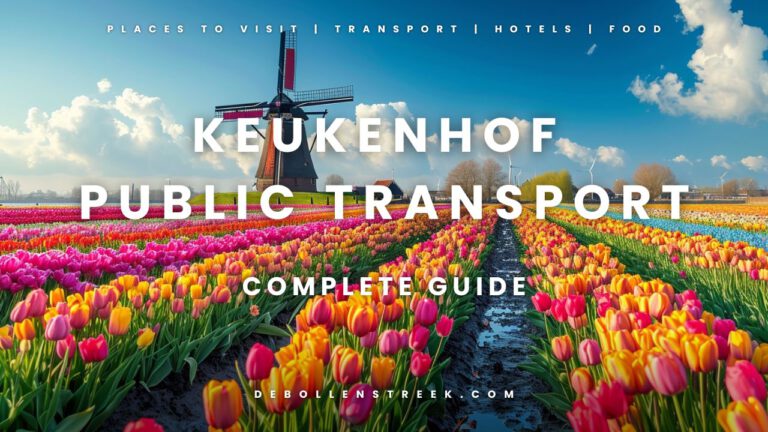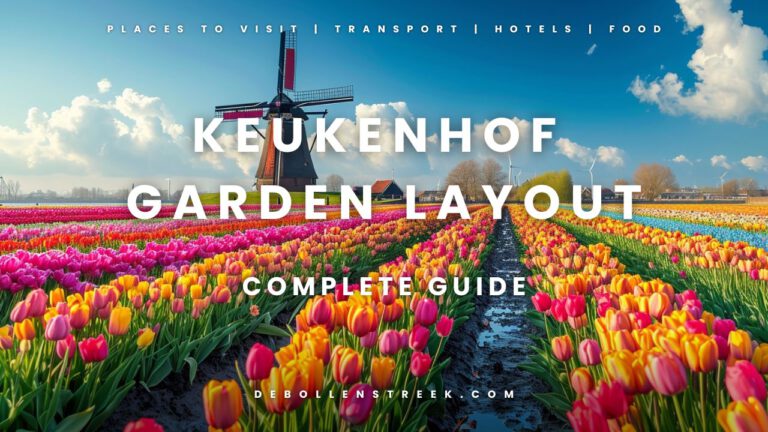Is tap water safe to drink in the Netherlands? When traveling, one common concern is whether tap water is safe to drink. In the Netherlands, this worry can be put to rest. Dutch tap water is renowned for its high quality and safety, making it not only drinkable but also preferable to bottled water for several reasons. This article delves into the quality of Dutch tap water, its sources, and the benefits of drinking it, ensuring you have all the information you need.
Is tap water safe to drink in the Netherlands: Introduction
The Netherlands is known for its robust water management systems, a necessity given its geography with significant portions of the country below sea level. The Dutch have turned this necessity into a strength, developing some of the highest water quality standards in the world. For travelers, understanding the safety and benefits of drinking Dutch tap water can enhance their visit by ensuring both health and convenience.
Is tap water safe to drink in the Netherlands: Water Quality Standards in the Netherlands
Regulatory Bodies and Guidelines
In the Netherlands, the quality of tap water is strictly regulated by various governmental and independent bodies. The primary regulator is the Dutch Drinking Water Act, which is overseen by the Ministry of Infrastructure and Water Management. This act aligns with European Union directives, ensuring that Dutch water quality meets stringent safety standards.
Testing and Monitoring Processes
Water companies in the Netherlands conduct regular and rigorous testing of tap water. These tests cover a range of parameters including microbial contamination, chemical substances, and physical properties like taste and clarity. The Netherlands’ water companies, such as Vitens and Waternet, are required to perform thousands of tests annually to ensure compliance with national and European standards.
Comparison with International Standards
Dutch tap water not only meets but often exceeds international standards set by organizations like the World Health Organization (WHO) and the European Union. The Netherlands’ commitment to high-quality water supply makes it a benchmark for other countries.
Is tap water safe to drink in the Netherlands: Sources of Tap Water
Natural Sources
The primary sources of tap water in the Netherlands include rivers, lakes, and groundwater. Major rivers like the Rhine and Meuse provide a significant portion of the water supply. Groundwater, particularly from deep aquifers, is another vital source, known for its purity and stability.
Water Treatment Processes
Before reaching your tap, water in the Netherlands undergoes extensive treatment processes. These include:
- Filtration: Removing large particles and impurities.
- Disinfection: Using chlorine or UV light to kill harmful microorganisms.
- Softening: Reducing the hardness of water to improve taste and prevent pipe scaling.
- Microfiltration and Reverse Osmosis: Advanced methods to remove even the smallest contaminants.
Distribution System
The Dutch water distribution system is highly efficient and well-maintained. Modern infrastructure ensures that water remains clean and safe as it travels from treatment plants to homes and businesses. Regular maintenance and updates to the system prevent contamination and ensure consistent quality.
Is tap water safe to drink in the Netherlands: Benefits of Drinking Tap Water
Environmental Impact
Drinking tap water significantly reduces the environmental footprint compared to bottled water. The production, transportation, and disposal of plastic bottles contribute to pollution and waste. By opting for tap water, you can help reduce plastic waste and the overall environmental impact.
Cost-Effectiveness
Tap water in the Netherlands is incredibly cost-effective. While bottled water can be quite expensive, especially over time, tap water costs a fraction of the price. For travelers and residents alike, drinking tap water can lead to substantial savings.
Health Benefits
Tap water in the Netherlands is not only safe but also beneficial to health. It often contains essential minerals like calcium and magnesium, which are important for bone health and metabolic functions. Additionally, the rigorous testing ensures that harmful substances are kept well below safe limits.
Bottled Water vs. Tap Water
Environmental Concerns
Bottled water contributes to significant environmental issues. The production of plastic bottles requires large amounts of fossil fuels, and many of these bottles end up in landfills or as litter in natural environments. Drinking tap water helps mitigate these environmental problems.
Cost Comparison
The cost of bottled water can add up quickly, especially for travelers who might buy several bottles a day. In contrast, tap water is essentially free, as the cost is included in standard utility bills. Using a reusable water bottle and filling it with tap water can lead to significant cost savings.
Misconceptions about Bottled Water
There is a common misconception that bottled water is inherently safer or purer than tap water. However, in many cases, bottled water is simply tap water that has been bottled at a different location. In the Netherlands, the quality of tap water is so high that there is no need to rely on bottled water for safety or purity.
Regional Differences in Tap Water Quality
Variations Across Different Cities and Regions
While the overall quality of tap water in the Netherlands is high, there can be slight variations in taste and mineral content depending on the region. These differences are usually due to the natural sources of the water and the specific treatment processes used by local water companies.
Factors Influencing Regional Water Quality
Factors such as the geological composition of the area, local environmental policies, and historical water usage practices can influence the characteristics of tap water in different regions. However, all regions adhere to the same stringent quality standards, ensuring safety across the country.
Case Studies of Major Cities
- Amsterdam: The city’s water, primarily sourced from the River Rhine and groundwater, is known for its excellent quality. Waternet, the local provider, ensures rigorous testing and treatment.
- Rotterdam: Water sourced from the Maas River and treated by Evides Waterbedrijf is known for its soft texture and pleasant taste.
- The Hague: Dunea, the water company serving The Hague, sources its water from the dunes, providing naturally filtered and high-quality tap water.
Public Perception and Trust in Tap Water
Surveys and Studies on Public Opinion
Public perception of tap water in the Netherlands is overwhelmingly positive. Surveys consistently show high levels of trust in the safety and quality of tap water. Most Dutch residents prefer tap water over bottled water for everyday consumption.
Efforts to Promote Tap Water Consumption
Various campaigns and initiatives aim to promote tap water consumption. These include educational programs in schools, public awareness campaigns, and the installation of free drinking water fountains in public places. Organizations like Join the Pipe advocate for reducing plastic waste by encouraging the use of tap water.
Success Stories and Campaigns
Successful campaigns like “Puur Natuur” (Pure Nature) have increased public confidence in tap water. These initiatives highlight the natural origins and rigorous treatment processes that ensure the high quality of Dutch tap water.
Is tap water safe to drink in the Netherlands: Practical Tips for Travelers
Using Tap Water Safely
Travelers can safely drink tap water directly from the faucet in the Netherlands. There’s no need for additional filtration or boiling. For those with sensitive stomachs, it’s always a good idea to start with small amounts and gradually increase consumption.
Tips for Those with Sensitive Stomachs
If you have a sensitive stomach or are concerned about adjusting to a new water supply, consider the following tips:
- Start by drinking small amounts of tap water.
- Use tap water to make tea or coffee to ease the transition.
- Carry a reusable water bottle and fill it throughout the day to stay hydrated.
How to Access Clean Tap Water in Public Places
In many Dutch cities, you’ll find public drinking water fountains where you can refill your bottle for free. These fountains are maintained to the same high standards as household tap water. Additionally, most restaurants are happy to provide tap water if you ask.
Is tap water safe to drink in the Netherlands: Conclusion
Dutch tap water is among the safest and highest quality in the world, making it unnecessary to buy bottled water. By understanding the rigorous standards, treatment processes, and benefits of drinking tap water, travelers can enjoy a cost-effective and environmentally friendly way to stay hydrated. So, next time you’re in the Netherlands, feel confident in reaching for the tap instead of a bottle.
Looking for more information on the beautiful Bollenstreek region? Check out our Agenda for upcoming events, explore exciting Activities to enjoy, or discover essential Information for your visit. Don’t forget to visit our partner Souvenir Shop Holland for unique gifts and keepsakes. For official travel advice, visit the Dutch Government website.



